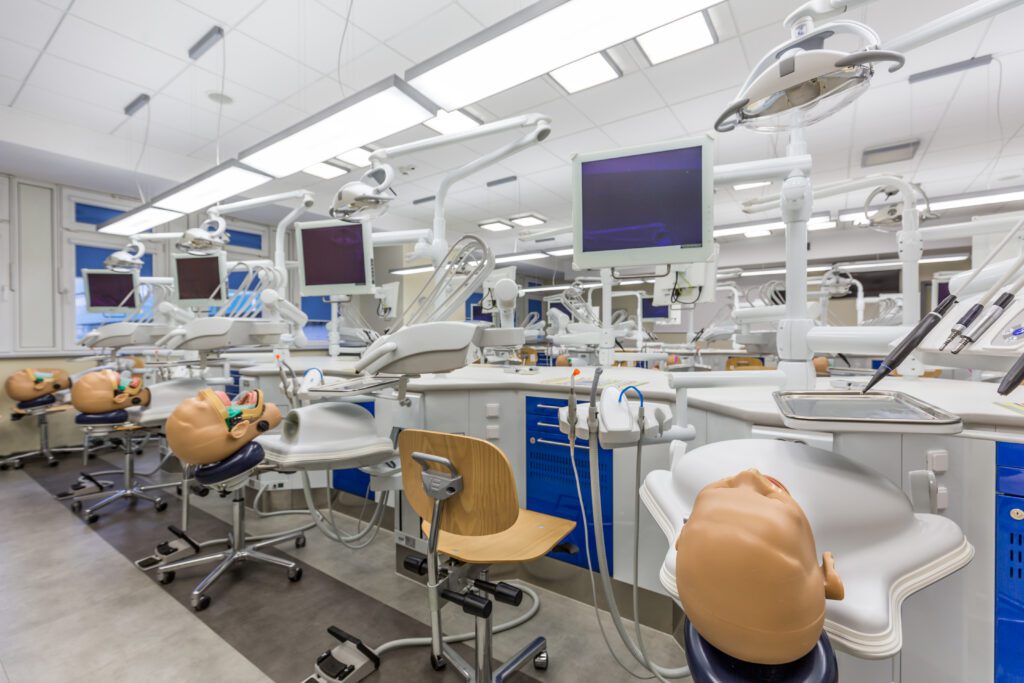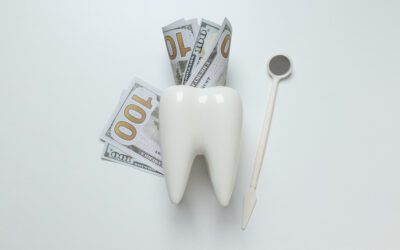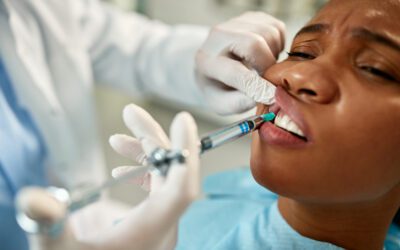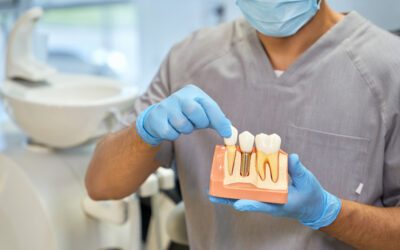When it comes to dental professionals, dentists hold one of two degrees: a Doctor of Dental Surgery (DDS) or a Doctor of Medicine in Dentistry, also known as a Doctor of Dental Medicine (DMD). But what is the difference between a DDS and a DMD?
If you are like most patients searching for dental care, you may easily get confused. It's logical to assume one degree is better than the other, as it seems like there should be a distinct variance in their education and qualifications. However, you'll be interested to know that there is no substantial difference between a DDS and a DMD. Regardless of the degree held by a dentist, their primary goal is to promote oral health and well-being for their patients.
In this article, we will explore what is the difference between a DDS and a DMD degree – what they entail, how they are the same, and which one is right for your dental needs.
DDS and DMD: History
Let's start with the history. The DDS degree originated in the 1800s at the Baltimore College of Dental Surgery, the United States' first dental school. However, in 1867, Harvard University founded a dental school of its own. Since Harvard has a tradition of using Latin names for their degrees, they choose “Dentariae Medicinae Doctor,” or DMD.
DDS is the abbreviation for Doctor of Dental Surgery, while DMD can mean Doctor of Medicine in Dentistry or Doctor of Dental Medicine. The distinction in the titles merely results from the dental school's choice to award a specific degree. Some schools award a DDS, while others opt for the DMD degree. However, both degrees allow dentists to perform the same procedures and provide patients with the same level of dental care.
Educational Requirements
Both the DDS (Doctor of Dental Surgery) and the DMD (Doctor of Medicine in Dentistry or Doctor of Dental Medicine) degrees involve the same level of education, training, and curriculum requirements set by the Commission on Dental Accreditation (CODA). The main difference lies in the university that awards the degree.
DDS Requirements
Students pursuing a DDS degree typically begin with a four-year undergraduate education, usually majoring in fields like biology, biomedical sciences, or chemistry. Once they complete their bachelor's degree, they move on to dental school, which takes another four years of classroom, clinical, and dental laboratory training. State licensing boards also accept both DDS and DMD degrees as equivalent.
DMD Requirements
Similar to DDS, DMD programs require an initial four-year undergraduate degree in biology, biomedical sciences, chemistry, or a related field. Once completed, students enter a four-year dental school to pursue their DMD degree. The coursework, training, and overall qualifications for both DDS and DMD degrees are the same.
In summary, the journey to attaining either a DDS or DMD degree involves an undergraduate degree followed by dental school. The distinction between the two degrees is rooted in the academic institution awarding them. Still, both are viewed as equal in the field of dentistry and enable graduates to practice general dentistry.

Clinical Training and Exams
The clinical training and exams for both DDS and DMD degrees are standardized across the United States to ensure all graduates possess the same knowledge and clinical skills. Every dental school, regardless of whether they grant a DDS or DMD degree, must adhere to the standards set by the Commission on Dental Accreditation (CODA) for their student's academic and clinical training.
After obtaining an undergraduate degree, dentists must pass the Dental Admissions Test (DAT). This is the standardized test used by dental schools during the admissions process. The DAT measures the student's academic proficiency and scientific knowledge.
During the four years of dental school, students focus on learning about facial and oral structures, overall oral health, plus various dental procedures. This class and lab work is in addition to developing their clinical skills.
Both DDS and DMD graduates are required to pass the Integrated National Board Dental Examination (INBDE). This exam consists of a written and a clinical examination to demonstrate their competency in the field of dentistry.
Furthermore, licensure requirements are set by each state's board of dentistry, with variations in specific requirements between states.
Scope of Practice
Both DDS-qualified and DMD-qualified dentists have a similar scope of practice, as their education and training are identical.
These dental professionals are equipped to carry out a wide range of dental procedures, from common treatments such as cleanings, fillings, and dental crowns to more specialized treatments like root canals, orthodontics, and dental implants.
Both types of dentists are licensed to diagnose and treat oral health issues and provide preventative care to maintain and improve their patient's overall oral health.
In summary, whether a dentist holds a DDS or DMD degree, their scope of practice remains the same, as their education, training, and licensure requirements are identical. Patients can anticipate the same level of care and expertise from both types of dentists.

Job Opportunities and Salaries
Now that we know what is the difference between a DDS and a DMD – it lies in the title awarded to graduates of dental schools. We can easily understand that the job opportunities available for both DDS and DMD degree holders are virtually identical within the field of dentistry. Dentists with either degree can practice general dentistry or opt to specialize in various areas, such as pediatric dentistry, periodontics, or orthodontics.
On average, the national salary for a dentist is $186,940 per year, with no significant difference between those holding a DDS or a DMD degree. However, per Indeed, dentists who pursue additional education to specialize in a specific dentistry area may earn more. For example:
- Orthodontists make an average of $287,449 per year.
- Periodontists earn an average of $225,523 per year.
These higher salaries are reflective of the extensive education, clinical training, and specialized services provided by dentists in their respective fields.
Choosing a Dentist: DDS or DMD?
When selecting a dentist, the question of whether to choose a DDS (Doctor of Dental Surgery) or DMD (Doctor of Dental Medicine) may arise. To help make an informed decision, understand that the curriculum, training, and competencies required for both DDS and DMD degrees are identical. This ensures that all dentists can provide high-quality care to their patients.
Consequently, rather than focusing on this distinction, prioritize the factors that will impact your dental health and overall experience during dental visits when choosing a dentist.
Here are a few aspects to keep in mind:
- Location and Hours: Consider the dentist's office location and accessibility from your home or workplace. Do they offer appointment times suitable to your schedule?
- Experience: Look into the dentist's years of practice and areas of specialization to ensure that they can meet your specific needs.
- Insurance and Payment Options: Check if the selected dentist accepts your current dental insurance or offers out-of-network payment options.
- Reputation: Patient reviews and personal referrals can offer insight into the quality of care and overall experience with a particular dentist.
- Communication: Ensure you feel comfortable discussing your concerns and asking questions with your chosen dental professional.
- Updated Technology and Services: Seek a dental office with the most up-to-date technology, like intraoral scanners, digital X-rays, and sedation dentistry.

Final Thoughts on What is the Difference Between a DDS and a DMD
In the world of dentistry, the terms DDS and DMD create confusion for many people. However, understanding their differences is quite simple. Both DDS, which stands for Doctor of Dental Surgery, and DMD, representing either Doctor of Medicine in Dentistry or Doctor of Dental Medicine, refer to the same level of education, training, and qualifications required by dental professionals.
The American Dental Association (ADA) states that these degrees are simply different names for the same education. The confusion arises from the fact that dental schools have the option to choose which degree they award to their graduates. However, both degrees meet the curriculum requirements set by the Commission on Dental Accreditation (CODA).
Ultimately, patients should feel confident that the dentist they choose has received the same education and training, whether their dentist holds a DDS or a DMD title. Both DMD and DDS dental professionals are well-equipped to provide the highest standard of oral healthcare to their patients.
When searching for a dentist in the Golden State Dentists directory, you can confidently take out the credentials puzzle piece of DDS or DMD. Once that piece is out of the equation, you can then take the time needed to focus on which dentist will be best to support your overall health. Make sure to factor in things like location, experience, insurance, specialization, reputation, and updated technology rather than the type of degree they hold.




